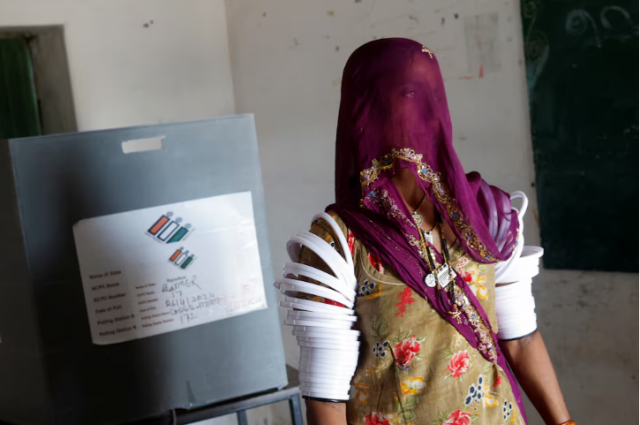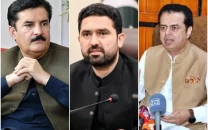India votes in second election phase as Modi vs Gandhi contest heats up
Congress has denied the charges and said Modi fears losing and was using divisive language

India began voting on Friday in the second phase of the world's biggest election, as Prime Minister Narendra Modi and his rivals raise the pitch of the campaign by focusing on hot-button issues such as religious discrimination, affirmative action and taxes.
Almost one billion people are eligible to vote in the seven-phase general elections that began on April 19 and concludes on June 1, with votes set to be counted on June 4.
Modi is seeking a record-equalling third straight term on the back of his economic record, welfare measures, national pride, Hindu nationalism and personal popularity. Surveys suggest he will easily win a comfortable majority.
His challengers have allied with more than two dozen parties and are promising greater affirmative action, more handouts and an end to what they call Modi's autocratic rule.
A total of 88 seats out of the 543 seats in the lower house of parliament went to the polls on Friday, with 160 million people eligible to vote. They were spread across 13 states and federal territories in the world's most populous country.
More than half of the seats in Friday's contests were in the southern states of Kerala and Karnataka and the northwestern state of Rajasthan.
The campaign has become more heated since the first phase of voting on April 19 as Modi and the main opposition Congress party have faced off on communal issues with Modi accusing Congress of favouring minority Muslims, aiming to dilute affirmative action and planning to impose an inheritance tax.
Congress has denied the charges and said Modi fears losing and was using divisive language to distract voters from real issues such as unemployment, the price rise and rural distress.
But some voters were responding to the BJP.
"I will vote for BJP. Muslims will get a lot of benefits if Congress comes to power and I don’t want taxpayers' money to go for the benefit of any one community," said Shree Hari S.S., 23, who voted in the tech hub of Bengaluru.
Tackling unemployment, inflation and high taxation in the world's fastest-growing major economy, however, should be the priorities of the new government, said Kareemulla Basha, 47, a Bengaluru software engineer and a Muslim voter.
"When you promise something, see if it is fiscally prudent," he said. "I am okay with subsidies, but the government should do a better job of finding a balance and understanding how much they will cost the exchequer."
Rahul Gandhi in the fray
Rahul Gandhi, former Congress president and the face of the party, was among the 1,200 candidates in the fray on Friday.
"Your vote will decide whether the next government will be of 'a few billionaires' or of '140 crore Indians'," Gandhi posted on X as voting began, referring to India's population of 1.4 billion.
"Therefore, it is the duty of every citizen to step out of their homes today and become a 'soldier of the constitution' and vote to protect democracy."
Gandhi is seeking re-election from Wayanad in Kerala and faces Annie Raja of the Communist Party of India (CPI) and BJP's K. Surendran, among others, in the Left Front-ruled state.
In 2019, Gandhi defeated the CPI candidate by more than 400,000 votes, the highest margin in Kerala, although he lost his second seat to the BJP in the family bastion of Amethi in north India. India allows a candidate to contest from more than one seat but they can retain only one if they win from more.
Congress slumped to a historic low when it was swept out of power by the BJP in 2014 and won its second-lowest number of 52 seats in 2019, with Kerala contributing the highest tally of 15.
The party is expected to do better in Karnataka this year where it won just one of 28 seats in 2019 but gained strength and defeated BJP in state elections last year.
It is still seen to be struggling nationally as bickering within the opposition alliance it leads and graft cases against some leaders have hobbled its challenge to Modi.
The Election Commission and political parties have been worried about voter turnout due to the summer heat and wedding season in some parts of the country with turnout falling to around 65% in the first phase from nearly 70% in 2019.
While Bengaluru, which has faced an unusually hot summer this year, is forecast to touch a high of 37 degrees Celsius (99 Fahrenheit) on Friday, Mathura is expected to touch 41 degrees Celsius (106°F), weather websites showed.



















COMMENTS
Comments are moderated and generally will be posted if they are on-topic and not abusive.
For more information, please see our Comments FAQ